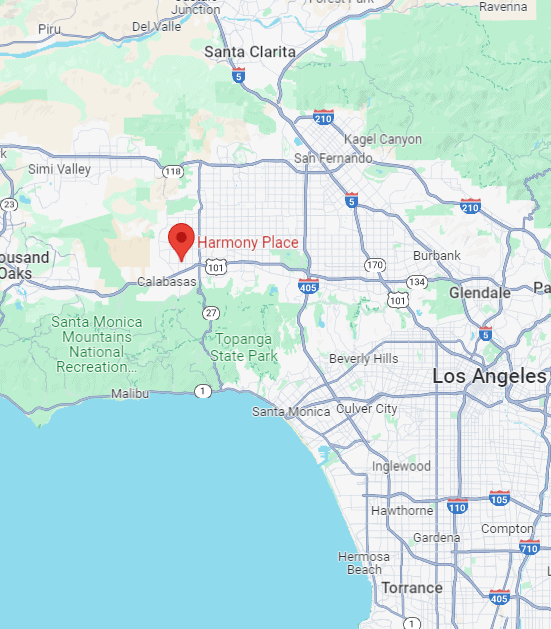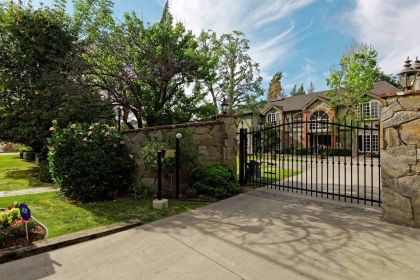How to Pay for Suboxone Treatment in Los Angeles, California
Harmony Place operates addiction recovery centers that can guide you on how to pay for Medication-Assisted Treatment (MAT) in Los Angeles, like Suboxone medication treatment. Our experienced team is also available to help you explore options for funding addiction treatment, such as MAT for opioid use disorder. If you require opioid addiction treatment, there are several ways to cover rehab costs.
Most California rehab assistance programs, like Harmony Place, will help you navigate how to pay for Suboxone in Los Angeles. If you’re also wondering how to pay for rehab more broadly, we can guide you through your options. Our Suboxone treatment program will help you overcome opioid dependence and even offer dual diagnosis treatment if you’re struggling with co-occurring disorders. Whether you are dealing with Suboxone cost with insurance or paying for rehab without insurance, our affordable addiction recovery services will help you tackle substance abuse recovery on a budget.
What Is Suboxone?
A Suboxone prescription is designed to treat opioid dependence. There are two active ingredients: buprenorphine and naloxone. Buprenorphine serves as a partial opioid agonist, meaning it creates effects like those of opioids like heroin or prescription painkillers, but to a significantly lesser extent. Suboxone manages withdrawal symptoms and reduces cravings.
Suboxone comes in the form of a tablet or a strip. Suboxone strips are dissolvable, thin films placed under your tongue. These strips are more absorbed faster than the pills. Naloxone, an opioid antagonist, is included to prevent misuse; if Suboxone is injected instead of taken as directed, naloxone can induce withdrawal symptoms, thereby minimizing the risk of abuse. Typically, Suboxone is part of a comprehensive treatment strategy that incorporates counseling and behavioral therapy. It aids in stabilizing you during opioid addiction treatment, allowing you to lead a more normal life without the burden of intense cravings or withdrawal.
Due to its effectiveness and safety when used appropriately, Suboxone has become a popular option in medication-assisted treatment (MAT) programs and Suboxone clinics, providing hope and assistance if you’re striving for long-term recovery from opioid use disorder. If you’re wondering how to pay for Suboxone treatment, contact us at Harmony Place to learn more about financial aid for substance abuse rehab.
What Is MAT with Suboxone?
Medication-Assisted Treatment (MAT) with Suboxone is a widely used method for addressing opioid use disorder (OUD). Medication-Assisted Treatment (MAT) is an approach used in addiction recovery programs that employs medication to help reduce the risk of overdose and fatalities, enhance treatment adherence, alleviate cravings, stabilize the body, and ease withdrawal symptoms.
When undergoing MAT for opioid addiction, your healthcare provider will weigh Suboxone vs. methadone. Even though both are effective, Suboxone has a lower risk of overdose, the ceiling effect reduces the risk of respiratory depression, and it can be prescribed for home use. Suboxone is a branded medication that combines two key components: buprenorphine and naloxone. Together, these components work to stabilize your body, reducing the risk of overdose. The most common Suboxone side effects include insomnia, headache, constipation, sweating, nausea, dizziness, drowsiness, mouth numbness, and anxiety.
The Medication-Assisted Treatment (MAT) with Suboxone includes several phases. During the induction phase, Suboxone is started when you are experiencing mild-to-moderate withdrawal. Next, in the stabilization phase, Suboxone dosage is adjusted to minimize cravings and withdrawal symptoms effectively. Finally, in the maintenance phase, you will remain on a consistent dose, often for an extended period, while also engaging in therapy and support services. The advantages of MAT with Suboxone include alleviating opioid cravings and withdrawal symptoms, reducing the likelihood of relapse and overdose, enhancing treatment retention, aiding in normalizing brain chemistry, and facilitating long-term recovery in conjunction with therapy.
What Are Suboxone Clinics in LA?
Suboxone clinics in Los Angeles are dedicated medical facilities that offer Medication-Assisted Treatment (MAT) for opioid use disorder. These clinics use Suboxone, a blend of two active ingredients: buprenorphine and naloxone, to alleviate cravings and withdrawal symptoms, supporting you to recover from opioid addiction.
These Suboxone clinics provide medical evaluations, counseling, behavioral therapy, telemedicine options, medication management, and insurance assistance. Contact us at Harmony Place if you have questions about paying for Suboxone in Los Angeles. Our team can help you learn how to afford Suboxone through alternative financing for rehab. We can also assist you if you’re going to undergo drug rehab without insurance.
Suboxone Treatment Statistics in Los Angeles, California
Suboxone treatment, a form of Medication-Assisted Treatment (MAT), has become an essential tool in tackling opioid addiction by integrating medication with counseling and support services. This method is widely recognized as one of the most effective strategies for managing opioid use disorder, particularly in regions with high addiction rates. However, despite its established advantages, Suboxone treatment is underutilized in California.
In 2023, the national rate for buprenorphine (Suboxone) prescriptions was 4.7 per 100 people, while California lagged at just 1.7 per 100, ranking it among the states with the lowest dispensing rates. This discrepancy highlights the need for improved access and outreach to make Suboxone treatment more available throughout the state, especially in densely populated areas like Los Angeles. Los Angeles, like much of California, continues to face challenges related to the opioid crisis. In 2022, the state recorded 7,385 opioid-related deaths and over 21,000 emergency room visits, emphasizing the critical need for effective treatment options. On a positive note, data from March 2019 indicated that nearly 97,000 individuals were enrolled in substance use treatment programs, with many receiving MAT services. Research shows that prolonged Suboxone treatment significantly decreases the misuse of prescription opioids, with almost half of the participants reporting improvement during at least 12 weeks of therapy. However, success rates sharply decline once treatment ceases, highlighting the necessity for ongoing care and support. Moreover, combining Suboxone treatment with contingency management and overdose is shown to be both cost-effective and valuable in mitigating opioid-related harm, an approach that could be particularly beneficial in Los Angeles if it were to be further expanded.
What Are the Benefits of Paying for a Private Suboxone Treatment Program in LA?
Investing in a private Suboxone treatment program in Los Angeles provides many advantages, especially if you seek a discreet, rapid, and personalized approach to recovery. Private Suboxone treatment programs offer exceptional care, individualized attention, flexibility, comfort, and a feeling of safety. Opting for private Suboxone treatment programs can significantly enhance your long-term well-being.

Shorter Admission Wait Times
Opting for a private Suboxone treatment program allows you to expect a significantly shorter wait time for admission. In comparison, public programs frequently face long waiting lists because of high demand and limited resources. Swift access to MAT for opioid use disorder can significantly reduce your chances of relapse or overdose.
Personalized Suboxone Treatment Plans
Private Suboxone treatment programs provide a tailored experience instead of a one-size-fits-all approach. In addition to comprehensive assessments, these programs consider your medical history, personal goals, and substance use patterns. This allows healthcare providers to determine the best options for your needs.
Comfortable Suboxone Treatment Accommodations
When you engage in a private Suboxone treatment program, you can expect top-notch accommodations. Private Suboxone treatment programs in Los Angeles often resemble wellness retreats rather than traditional medical clinics. The living environments are exceptionally comfortable, pristine, and tranquil, featuring a range of amenities. This atmosphere contributes to reducing stress and anxiety throughout the opioid addiction treatment rehabilitation process.
Greater Privacy and Confidentiality
If safeguarding your privacy is essential during your recovery from opioid dependence, a private Suboxone treatment program can provide greater discretion. This is especially important for public figures and professionals who worry about stigma. Private Suboxone treatment programs enforce strict confidentiality protocols and are typically situated in upscale neighborhoods, ensuring a higher level of anonymity.
Freedom in Selecting a Suboxone Program
In contrast to public opioid addiction treatment programs, private Suboxone treatment programs provide the flexibility to select from various treatment styles and environments. Whether you prefer a facility in the city or a holistic program nestled in the tranquil countryside, you can tailor your recovery journey to fit your lifestyle and personal preferences.
Access to Advanced Suboxone Techniques and Therapies
Private MAT for opioid use disorder treatment centers often incorporate state-of-the-art technology, the latest research on opioid dependence, and creative therapeutic methods. Examples of these modern approaches include neurofeedback, dual diagnosis treatment, alternative healing methods, and trauma-informed therapy. These advancements may not be available in public programs.
Ideal Staff-to-Patient Ratios
Private Suboxone treatment programs typically offer a lower staff-to-patient ratio, ensuring that you receive the essential care and attention needed for your recovery from opioid dependence. This leads to more personalized support, faster responses to emotional or medical needs, and consistent check-ins.
How Much Does Suboxone Cost Without Insurance Coverage in Los Angeles, CA?
When not covered by insurance, expenses related to Suboxone in Los Angeles will vary based on the dosage, formulation (film or tablet), and pharmacy pricing. A 30-day supply of generic Suboxone usually costs between $50 and $150, depending on the dosage and the pharmacy. Brand-name Suboxone prices are higher, typically ranging from $150 to over $500 monthly.
Ways to reduce these costs include discount programs like GoodRx, SingleCare, and ScriptSave, manufacturer assistance, pharmacy shopping, patient assistance programs like NiceRx and Prescription Hope, and local clinics with sliding-scale fees. Contact Harmony Place for more information about our MAT for opioid use disorder options and rehab payment plans.
How to Pay for Suboxone Treatment Without Health Insurance Coverage
Covering Suboxone treatment expenses in Los Angeles without insurance can feel daunting and unmanageable. However, there are several options when it comes to funding addiction treatment, such as scholarships for rehab programs, grants for addiction treatment, state-funded rehab in California, and government assistance for rehabilitation. Adopting a proactive approach when searching for drug rehab without insurance is wise.
Sliding Scale Fees with Suboxone Facility
Many Suboxone treatment programs offer sliding-scale fees based on income and financial situation. This allows you to obtain crucial care even if your income is limited.
Sliding-scale options are typically available at community clinics and non-profit health organizations.
These MATs for opioid use disorder aim to remove barriers and ensure you can access rehabilitation services. Contact your local health department to discover the nearest Suboxone treatment programs that provide this payment plan for rehab.
Crowdfunding or Local Community for Suboxone
Crowdfunding platforms such as Fundly, GoFundMe, and YouCaring can be valuable tools for securing financial aid for substance abuse rehab. These platforms let you share your story, set a funding target, and inform supporters about your progress.
Many local community resources are available, including churches, recovery organizations, and charities. These groups often host events like benefit concerts, garage sales, or bake sales to help you gather the funds necessary to enroll in your Suboxone treatment program.
Pay for Suboxone with COBRA Insurance
Suppose you’ve lost your job and were previously covered by employer-sponsored health insurance. In that case, the Consolidated Omnibus Budget Reconciliation Act (COBRA) allows you to temporarily keep your current health plan. However, this option may come with certain expenses.
This allows you to seek a more permanent solution while ensuring you continue to receive essential opioid addiction treatment. Verifying your plan to confirm your coverage and fully understanding your out-of-pocket costs is crucial.
Flexible Payment Plans with Suboxone Clinic
Numerous rehabilitation centers that provide MAT for opioid use disorder offer rehab payment plans, making it more accessible and affordable to overcome opioid dependence by dividing the total costs into manageable monthly payments.
It’s crucial to thoroughly review the terms and conditions of the rehab payment plan, focusing on aspects such as interest rates, penalties for missed payments, and the total length of the repayment period.
Non-Profit Organizations for Suboxone Scholarships
Nonprofit addiction treatment support can serve as an alternative funding source for opioid addiction treatment, including Suboxone treatment programs. Many of these organizations provide scholarships for rehab programs and grants for addiction treatment that can assist in covering some or all of your drug rehabilitation without insurance.
The application process typically requires submitting documentation, writing a personal essay, and participating in interviews. Exploring options such as SAMHSA-funded centers, 10,000 Beds, and local foundations is worth exploring. Keep in mind that scholarships for rehab programs are often limited, making it essential to apply early and ensure your application is thorough.
Network of Family, Friends, and Local Community
Talking about your need for financial support to recover from addiction with your loved ones can be difficult and uncomfortable. Nevertheless, those in your support network are often eager to help someone they care about during such a challenging time.
Beyond your immediate circle, local community resources can be incredibly beneficial. They might assist in funding addiction treatment or even organize donation drives on your behalf. Churches, community centers, and mutual aid organizations can connect you with individuals who have encountered similar struggles, offering valuable guidance and support.
Private Self-Pay for Suboxone Clinic
Paying for your Suboxone treatment program out of pocket can be a smart option if you have some savings. Many Suboxone clinics offer discounts for upfront payments. This approach allows you more freedom in selecting your Suboxone treatment program, enabling you to choose a facility and healthcare provider without the restrictions set by insurance companies.
You can avoid network limitations and the need to wait for specific approvals. However, it is essential to verify with the Suboxone clinic regarding any hidden fees or additional service costs.
Government Assistance Programs or EAPs for Suboxone Rehab
If you’re looking for government assistance for rehab in Los Angeles, you can explore various options provided by federal and state-funded rehab in California. These include Medicaid, state-funded rehab in California, and government aid for substance abuse rehabilitation.
If you are currently working, contacting your Human Resources department about Employee Assistance Programs (EAPs) is wise. These programs often provide short-term referrals, addiction counseling, and, in some cases, treatment for substance abuse. They could serve as a valuable resource while you seek a more lasting solution.

How to Afford Suboxone Treatment Without Health Insurance Coverage in Los Angeles County
Paying for Suboxone without health insurance in Los Angeles can be challenging, but there are numerous affordable addiction recovery alternatives available. Many Suboxone clinics provide sliding scale fees based on your income. In addition, several nonprofits and community health centers offer Medication-Assisted Treatment (MAT) for opioid use disorder either for free or at significantly reduced rates.
State-funded rehab in California provides grants for addiction treatment. Moreover, the Substance Abuse and Mental Health Services Administration (SAMHSA) offers a MAT locator to help you find free or low-cost MAT for opioid use disorder. Just search for “free MAT for opioid use disorder near me.” Government assistance for rehab is another practical option to help cover the expenses of your Suboxone treatment program.

Private Suboxone Programs in Los Angeles That Offer Flexible Payment Options
Harmony Place provides a range of private Suboxone treatment programs in Los Angeles and offers flexible financial aid for substance abuse rehab. Our Woodland Hills centers accept most insurance and can help you secure funding for addiction treatment if you’re attending drug rehab without insurance. Contact us today at (855) 652-9048.
Harmony Place
23041 Hatteras St.
Woodland Hills, CA 91367
Harmony Place East
22913 Burbank Blvd.
Woodland Hills, CA 91367
Finding a Suboxone Treatment Center Near Me
If you seek treatment for opioid dependence, selecting the right Suboxone treatment program can significantly support your recovery. At Harmony Place, we are frequently asked, “Where are Suboxone doctors near me?” Opting for MAT for opioid use disorder near your location can remove travel barriers, ensure ongoing support, and reinforce your dedication to your recovery plan.
Here’s a step-by-step guide to help you:
- Utilize SAMHSA’s Treatment Locator
Go to findtreatment.gov and input your ZIP code to find certified Suboxone providers. The U.S. government-run resource offers reliable, up-to-date information.
- Consult Your Primary Care Physician
Your doctor can refer you to local Suboxone treatment programs or specialists. They may also assist in coordinating your care to ensure ongoing support.
- Explore Local Addiction Clinics
Numerous outpatient opioid addiction treatment centers provide Suboxone therapy. Search online or contact local clinics to inquire about their services and availability.
- Reach Out to Your Health Insurance Provider
Your health insurance company can supply a list of in-network Suboxone treatment providers, helping to ensure your treatment is affordable and covered.
- Look Online with Google Maps or Yelp
Enter “Suboxone clinic near me” into Google Maps or Yelp to discover local options and reviews. Consider clinic ratings and patient feedback to make an informed decision.
- Visit a Community Health Center
Federally funded health centers frequently offer MAT, including Suboxone. These centers cater to you regardless of your financial situation and often provide sliding-scale fees.
- Contact a Local Mental Health or Substance Abuse Hotline
Hotlines can connect you with nearby Suboxone treatment programs. They can also offer immediate support and guidance on the next steps.
How to Pay and Get Into a Suboxone Clinic in Los Angeles
Navigating the process of accessing and financing Suboxone treatment programs in Los Angeles entails several key steps. It begins with first recognizing the need for assistance, exploring payment options, and ultimately engaging in treatment while establishing aftercare support. While numerous reputable Suboxone treatment programs are available, it is essential to comprehend how to afford therapy in Los Angeles.
Recognize the Need for Suboxone
Acknowledging the need for help is frequently the most critical and complex step. This recognition can be particularly beneficial if you are struggling with opioid dependence. If you are seeking opioid addiction treatment, a Suboxone treatment program could be the perfect fit.
Deciding if this path is right for you necessitates genuine self-reflection and support from loved ones. If you find yourself dealing with withdrawal symptoms, intense cravings, or repeated relapses despite your attempts to stay sober, seeking an MAT for opioid use disorder could be a viable and potentially life-saving option.
Research Suboxone Clinics and Consult with Professionals
Once you recognize the necessity for opioid addiction treatment, it’s crucial to explore the Suboxone clinics available in Los Angeles. Look for licensed MAT for opioid use disorder treatment centers that provide experienced medical staff, tailored treatment plans, and supportive therapy options.
The Substance Abuse and Mental Health Services Administration (SAMHSA) website is valuable for finding certified programs in your area. After compiling a list of potential Suboxone clinics, seek guidance from healthcare professionals or addiction specialists.
Assess Payment Options for Suboxone
You may be wondering if Suboxone is covered by insurance. In Los Angeles, various Suboxone treatment programs accept multiple insurance plans, including Medi-Cal, Medicare, and private insurance for MAT coverage. It’s crucial to verify your coverage with your insurance provider and the Suboxone clinic to understand which services are included and any potential out-of-pocket costs you may face.
If you’re funding drug rehab without insurance, many Suboxone clinics offer alternatives like rehab payment plans, sliding-scale addiction treatment, or access to state-funded rehab in California. Feel free to ask about financial aid for substance abuse rehabilitation or grants for addiction treatment that could help reduce some expenses.
Contact the Suboxone Program and Complete the Intake Process
After selecting a Suboxone clinic, the next step is to contact the Suboxone treatment program directly. Most Suboxone clinics employ admissions coordinators who can answer your questions and assist you. Be prepared to share personal and medical details to evaluate your eligibility and customize your Suboxone treatment plan.
The intake process typically involves assessments, drug screenings, and a thorough medical and mental health history review. This is essential to ensure that the Suboxone treatment program aligns with your needs and verifies your suitability for MAT for opioid use disorder. Laying this groundwork is critical for a safe and effective treatment experience.
Prep for Suboxone Rehab and Enter Detox (if Needed)
Before beginning, it might be necessary to complete a medically supervised detox to manage opioid dependence withdrawal symptoms safely. This detoxification process typically acts as the first step in the Suboxone treatment program, especially if you have been using opioids heavily or for extended periods.
Preparing for a Suboxone treatment program entails practical preparations, including arranging transportation, informing employers or family members, and mentally preparing for a substantial lifestyle shift. Opioid addiction treatment encompasses more than just MAT for opioid use disorder; it’s about rebuilding your life with the proper support and mindset.
Engage in the Suboxone Process
Upon enrollment, the Suboxone treatment program begins with the administration of Suboxone, aimed at stabilizing brain chemistry and reducing cravings. Regular appointments with doctors and therapists help to monitor your progress and make any needed adjustments to your treatment plan.
Engaging in counseling sessions, support groups, and behavioral therapies is equally important. These services are designed to assist you in understanding the root causes of opioid dependence, developing healthy coping mechanisms, and sustaining your dedication to long-term sobriety.
Develop a Course of Action with Support
Opioid addiction treatment recovery continues well after the Suboxone treatment program ends; effective aftercare planning is essential. Before your discharge, the Suboxone clinic will help you develop a personalized aftercare plan, which may include ongoing medication management, outpatient therapy, sober living arrangements, or involvement in peer support meetings.
A strong support network is crucial for maintaining opioid dependence recovery. This network may include family, friends, a sponsor, or a recovery coach. Consistent encouragement and accountability can greatly reduce the likelihood of relapse while promoting long-term wellness.
Request a Callback About Paying for Benzo Treatment
- Aetna Addiction Rehab Cover
- Amerihealth Addiction Rehab Cover
- Anthem (Elevance Health) Addiction Rehab Cover
- Beacon Addiction Rehab Cover
- Blue Cross Blue Shield Rehab Cover
- Carelon Addiction Rehab Cover
- Cigna Addiction Rehab Cover
- Compsych Addiction Rehab Cover
- First Health Addiction Rehab Cover
- Humana Addiction Rehab Cover
- Kaiser Permanente Addiction Rehab Cover
- Magellan Health Addiction Rehab Cover
- Medical Mutual Addiction Rehab Cover
- Molina Health Addiction Rehab Cover
- Multiplan Addiction Rehab Cover
- Optum Addiction Rehab Cover
- TRICare Addiction Rehab Cover
- United Healthcare Addiction Rehab Cover
Statistics on Paying for Suboxone in Los Angeles
- Medication-Assisted Treatment (MAT), like Suboxone treatment, is a method for addressing addiction that combines the use of medication with counseling and additional support. According to the U.S. Department of Health and Human Services, if you’re struggling with opioid addiction, this approach is often considered the most effective option.
- According to the CDC, the national buprenorphine dispensing rate has remained consistent from 2019 to 2023. In 2023, the rate stood at 4.7 buprenorphine (brand name Suboxone) prescriptions dispensed for every 100 individuals, amounting to over 15 million prescriptions. California has one of the lowest dispensing rates at 1.7.
- A study examining Suboxone treatment for painkiller addiction revealed that approximately 49% of participants experienced a reduction in their prescription painkiller misuse during an extended treatment period of at least 12 weeks. However, this success rate fell significantly to 8.6% after the discontinuation of Suboxone.
- According to the National Library of Medicine, a cost-effectiveness study found that combining Medication-Assisted Treatment (MAT) like Suboxone treatment with contingency management, and overdose education for treating opioid use disorder resulted in substantial health benefits and cost savings when compared to no treatment.
- In March 2019, California reported that 96,960 people were enrolled in substance use treatment, including Medication-Assisted Treatment (MAT), with 60.1% treated for drug issues only, 10.9% for alcohol issues only, and 29.0% for both, according to the California Behavioral Health Barometer.
- In 2022, the CA Overdose Dashboard reported 7,385 opioid overdose deaths and 21,316 related emergency room visits, highlighting the importance of accessible and affordable MAT like Suboxone treatment.


















